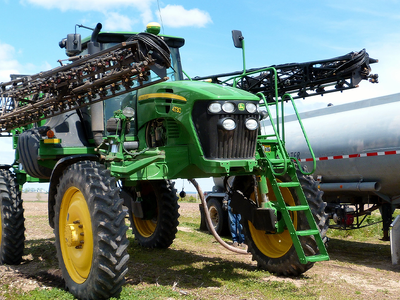Rural electric cooperatives
It might be the first thing you think of when you hear the word cooperative, as in a cooperative business, rural electric cooperatives, other entities just didn't want to go into rural America and provide the power. So President Roosevelt started the Rural Electrification Administration, and at the same time, you had co-ops begin to take advantage of ray funding. And it worked. You both saw electric power being provided in areas where it had never been seen before, and those areas prospered as a result. Andy Burke is the administrator of USDA's Rural Utilities Service, the successor of the Rural Electrification Administration. On this National Cooperative Month observance in October, the administrator notes, electric co-ops are owned by their members, and so the members are choosing their path to reliability. Recently, investments in rural electric cooperatives over $7 billion under USDA's Empowering Rural America New ERA program were announced. The focus was on clean energy technologies and innovations for use by electric co-ops through 16 projects, with New ERA funding leveraged by private investments. These are $29 billion worth of new projects. That's also a job creator. That's roughly 16,000 jobs.Speaker1: Beyond the economic development fostered by these New era projects. Estimates have over ten gigawatts of clean energy produced by these new facilities, while at the same time causing a greenhouse gas reduction of almost 44 million tons each year. One place where you're seeing a lot of innovation is in battery storage. So one of the issues with wind power, with solar power is that the sun doesn't shine all day. Wind doesn't blow every day. And so you need to figure out how you keep the system reliable as you transition to clean energy. And co-op are doing that, such as one Wisconsin Rural Electric Cooperative putting battery storage besides its solar array to provide constant power. One thing that's super important about all this is that when you put in these battery storage units, when you have extreme weather events that might damage another part of the system, now you've got enough energy to help balance that out. And so it actually ends up making your system more resilient to extreme weather events.













